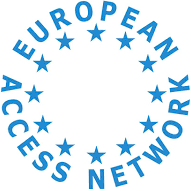Roles and duties
Executive Committee
The role of the Executive Committee is to implement the aims and objectives of the EAN. It also advises, reviews, steers and monitors the work of the Working Group. The Committee meets two to three times a year, one of which is at the time of the EAN annual conference. The Executive Committee has responsibility for electing the Officers of the EAN.
Executive Members
One member of the EAN representing each country with EAN membership can be elected by the EAN membership at the Annual General Meeting for a period of two years. Executive members are expected to attend the meetings of the Committee, which take place two to three times a year, one of these on the occasion of the Annual Conference, and the other two hosted by Committee members in turn, to spread travel costs. Executive members are expected to cover their own travel, accommodation and subsistence costs.
To become Executive Members, they and the institutions or organisations they represent should have a strong commitment to widening access and participation in higher education, promoting lifelong learning, diversity and social inclusion.
It is appreciated that those wanting to become Executive Members are dedicated individuals and are prepared to help the EAN achieve its goals without seeking pecuniary benefits. However, it should be made clear that once a member there are certain obligations that go with it, not least to attend as many Committee meetings as possible and to update the Committee regularly on their work for the EAN.
Specific duties and responsibilities of Executive Members:
- To act as EAN ‘ambassadors’ in their respective countries and where appropriate within other institutions or networks in other countries so as to actively recruit new members to the EAN to help expand its membership base as broadly as possible.
- To help identify fund raising opportunities for the EAN (including new funded projects).
- To raise awareness and mobilise local networks, associations, enterprises, institutions, governments and individuals amongst others in their respective countries to promote access, widening participation and lifelong learning for disadvantaged and under-represented groups.
- To identify relevant issues in their respective countries and to help initiate EAN briefing seminars and establish links with like-minded organisations.
- To contribute to the animation of the website (e.g. uploading information on Members’ individual and institutional profiles, updating on access developments, reporting on their projects, taking part in on-line discussion, etc.)
- Without acting as a full translation service, to provide when necessary, translations from English to their respective national languages for short papers and articles and write-ups for the EAN website.
